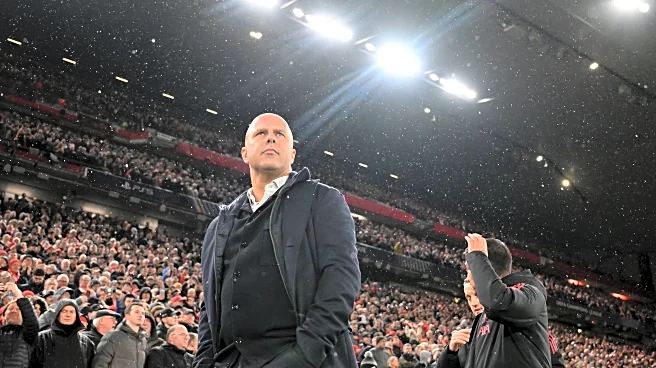It would have been hard to miss Scottish captain Andy Robertson’s comments on feeling the absence of Diogo Jota amidst the joy of seeing his country qualify for their first World Cup since 1998, and Arne
Slot was asked about it in his pre-Forest press conference.
The Liverpool boss acknowledged both the impact of grief, and how notions of the team’s loss have shaped internal and external narratives this season — and also how much Liverpool miss the player as well as the man. Despite all this, Slot wanted to be clear that alongside Jota himself he and his men are thinking always of his family:
“We are always judged — sometimes fair, sometimes unfair. I saw the interview as well live. I know that is an issue for us, which I think is completely normal. But in these moments of time we, I, always think about how much it feels for his wife and his children, because that’s so, so, so much harder for them than it is for us. But that we miss the player and the person, that is completely clear.
“Maybe it tells you even more now we play Nottingham Forest; last season we were 1-0 down at Forest and it only took him one minute to score the equalizer. So now I’m talking about the player that we miss for sure, because this time we haven’t managed to come back as many times as last season after being 1-0 down or a goal down.
“He definitely played his part in that last season. But that we also miss him as a person, that is completely clear. But again, his wife and children will miss him so, so, so much more. His parents, by the way, as well.”
Despite the inklings of a narrative, the boss was firm in his belief that being reminded of Jota by the singing of his song is a good thing, and that loss is not something that he or the media should try to create a narrative out of:
“I think it’s good for us to [remember] him every time possible because, like I said, the person and the player he was. But it’s impossible to measure what it does to the players and then to measure what it does to our results. The last thing I would do is to use it as an excuse because simply I don’t know.
“What I do know is that we miss the player — that’s 100 per cent sure — and we also miss the person, but I cannot measure what impact that has on our performances, let alone on our results. That’s impossible for me to say and we will never use it as an excuse because that doesn’t feel right.”
Slot’s comments seem to seek to create distinctions in how this is discussed: we can, he suggests, acknowledge the depth of the loss of the man himself, and how grief may be complicated and impact individuals and the collective; we can also clearly see how the team misses the player, who was good at nothing if not scoring important goals to change results. Doing those two things should never, however, be twisted into a discourse or an excuse to create a narrative about Liverpool’s form. Not everything, Slot seems to say, needs to be about casting or side-stepping blame, some things can just be human.









